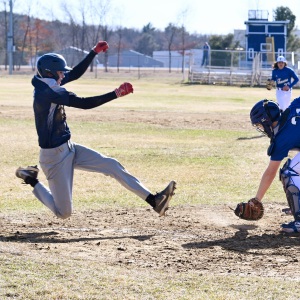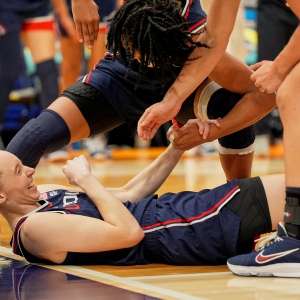Olympic Report with Jim Johnson: How Do Olympic Athletes Prepare for the Games?

Jim Johnson
| Published: 07-15-2024 4:07 PM |
Athletes from all over the world have now qualified for the upcoming games. They are training for one singular objective: to be at their peak ability for the summer games. Athletes must systematically train themselves so that on that one day, or series of days, they are at their best. Simply qualifying for the games is difficult. If athletes aren’t at their best for the trials, they aren’t going to Paris. Since athletes cannot be in top condition for long periods of time, this presents a problem and elite athletes play a balancing act between being in peak condition or overtrained. They need to train hard but they also need to rest; they have to manipulate the volume and intensity of training so that when the gun goes off, they are in the best condition they can be.
Numerous studies have been conducted regarding the effects of exercise on performance, but most of this research has not been conducted on elite athletes. Elite athletes are not that willing to take time off to participate in random treatments. All athletes do not respond the same to training; no program fits all. This is even more daunting during this period between trials and games. As the games near, professional athletes will try to eliminate all stressors except for training. Athletes just train, recover, rehydrate, refuel and attempt to reduce stress. This time requires good coaching and coaches who listen to their athletes.
Regardless of the method of training, the goal is to peak for the games. I believe there are several general considerations that are important. First, all training sessions must have a purpose; they must be planned. As the adage goes, “Failing to plan is planning to fail.” Training must be individualized. Training must involve recovery. After a hard activity, the body needs to recuperate before one can do it again. In this manner training can focus on high quality, performing at intensities that reflect competition.
During the year most professional athletes use some form of cyclical training, manipulating the volume and intensity of training, moving from high volume to low. Toward the end of a cycle, they begin to taper and focus on quality performance. This form of training is called periodization. Periodization was first reported by Soviet scientists about 40 years ago. Rest is an important part of periodized training. Athletes go through training cycles of 2-3 months ending in a peak followed by rest. A new cycle is then built on the previous cycle, slowly increasing performance.
Not all athletes have a schedule that allows them to peak for the Olympic trials or the Olympics. This is particularly true for track and field athletes. Consider that track and field athletes compete all spring followed by conference and national championships just two weeks prior to the Olympic trials. At the end of this, they are tired. Compare their training with athletes like Noah Lyles and Gabby Thomas who compete sparingly all spring, picking their competitions according to their training schedule. College swimmers, on the other hand, complete their competitive season in March and have the time to recover before starting a cycle designed to peak in the summer. You will see many collegiate swimmers in the Olympics.
The best way to train remains an enigma. In the swimming world, some swimmers complete enormous mileage every week while others focus more on swimming at race pace or faster. Both will win medals in Paris. Interestingly, just when track coaches seem to have the answer someone comes along like Florida runner Parker Valby. She won every collegiate distance running championship last year and qualified for the 10,000 meter run in the Olympics. She only runs three days a week and cross-trains on other days, anathema to most coaches
Jim Johnson is a retired professor of exercise and sport science after teaching 52 years at Smith College and Washington University in St. Louis. He comments about sport, exercise, and sports medicine. He can be reached at jjohnson@smith.edu
Article continues after...






 HS Roundup: Franklin Tech baseball wins third in a row following 8-1 triumph over Smith Academy
HS Roundup: Franklin Tech baseball wins third in a row following 8-1 triumph over Smith Academy Bulletin Board: Greenfield's Savannah Thomas wins Knights of Columbus Hoop Shoot state title
Bulletin Board: Greenfield's Savannah Thomas wins Knights of Columbus Hoop Shoot state title High school track preview 2025: Powerhouse Frontier favorites to lead the local pack
High school track preview 2025: Powerhouse Frontier favorites to lead the local pack UConn women's basketball team captures 12th national title in dominant win over South Carolina
UConn women's basketball team captures 12th national title in dominant win over South Carolina
